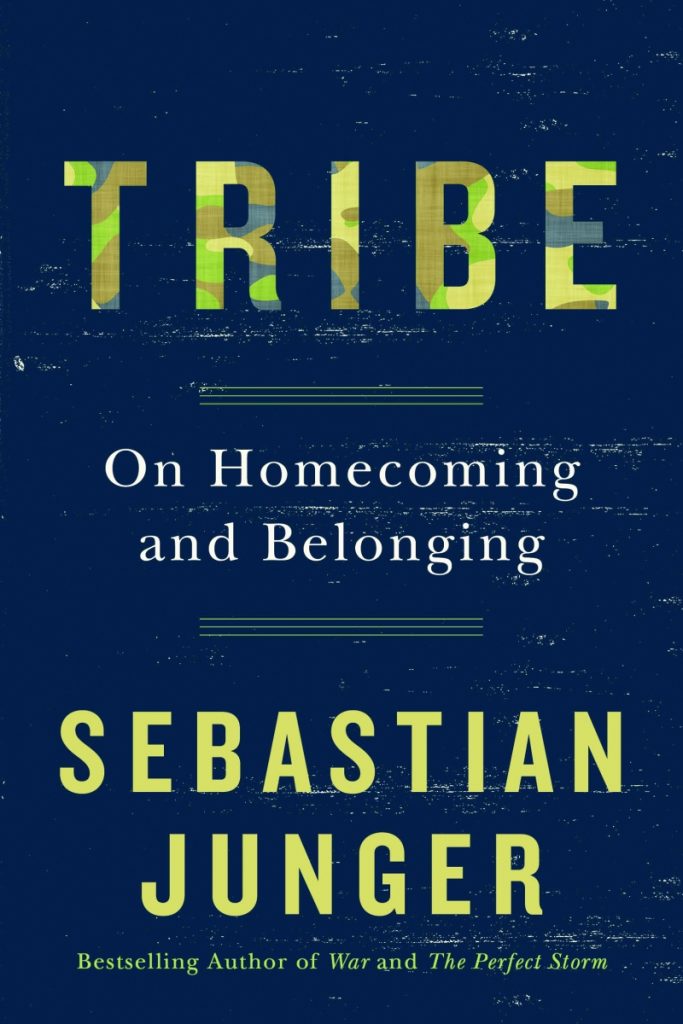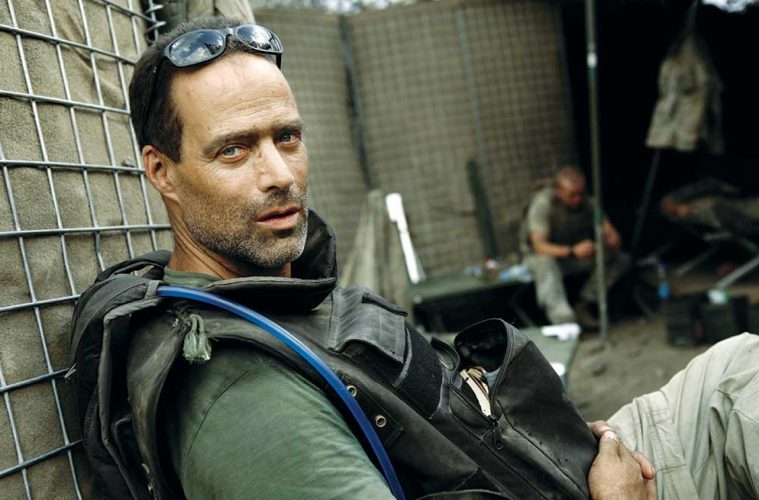Poke your head above the magazine for a moment. Peek out your living room window.
(And stop checking your phone. You’re checking your phone already, aren’t you?) Look at what you see: maybe a late-model car or two parked in the driveway, maybe a manicured lawn, maybe your own living room furnishings reflected back at you in the glass.
The idea that these material objects won’t make a person happy isn’t exactly revolutionary. But look a bit further, and perhaps you’ll catch a glimpse of what might: the other people lurking behind the other curtains, checking other phones and getting ready to drive other cars to work.
Rewind history by a couple of decades, and the smartphones disappear. Rewind by a couple of centuries, and the cars are gone, too. Rewind far enough back, and the lawns and the leather ottomans and even the homes vanish. Only the people remain.
“When you see the corporate warrior who wakes up in his cul-de-sac in his affluent suburb, and kisses his kids good-bye, and marches off to the office, and works in a cubicle by himself, and then comes home in traffic —that’s not the human species,” says Sebastian Junger, author of Tribe: On Homecoming and Belonging. “We can do it, because we’re adaptable, but it clearly burdens people with incredible, incredible psychological stress.”
“Our human history was characterized by small groups of people having to work at moderate intensity continually in order to survive,” Junger adds. “That was the nature of human life. You were constantly participating in that group endeavor of survival. That’s what we’re wired for.”
 Junger, who rose to fame with the 1997 publication of The Perfect Storm, which chronicles the ill-fated voyage of a Gloucester fishing boat and its crew, has since written extensively and even directed two documentaries about the war in Afghanistan, and Tribe sprouted from a Vanity Fair article he wrote about soldiers returning home from combat with post-traumatic stress disorder. Junger found that many soldiers actually missed being in a war zone–or, at least, missed certain positive aspects of their service, which included belonging to a close-knit community of people who were routinely asked to make sacrifices and take risks for one another. Much of the alienation and depression that returning soldiers experience, Junger concluded, may be due to their coming home to communities and places that lack these tribal qualities.
Junger, who rose to fame with the 1997 publication of The Perfect Storm, which chronicles the ill-fated voyage of a Gloucester fishing boat and its crew, has since written extensively and even directed two documentaries about the war in Afghanistan, and Tribe sprouted from a Vanity Fair article he wrote about soldiers returning home from combat with post-traumatic stress disorder. Junger found that many soldiers actually missed being in a war zone–or, at least, missed certain positive aspects of their service, which included belonging to a close-knit community of people who were routinely asked to make sacrifices and take risks for one another. Much of the alienation and depression that returning soldiers experience, Junger concluded, may be due to their coming home to communities and places that lack these tribal qualities.
“For me, the point of the book really wasn’t soldiers at all,” says Junger, who grew up in Belmont, lives in New York City, and owns a house on Cape Cod. “My central point is, why is modern society—for all of its benefits and blessings—why is it so unappealing in human terms, even to people who have benefited from its advantages?”
For a slim volume, Tribe covers broad territory, ranging from historical accounts of white settlers running off to join American Indian tribes, to the financial collapse of 2008, to the way communities become closer in the wake of natural disasters. But most relevant to a modern civilian reading audience, perhaps, is that central question about why people don’t simply become happier and happier as they accumulate more and more wealth.
The answer, Junger posits convincingly, isn’t that money is inherently evil, but that it allows people to isolate themselves and become less interdependent on one another. Instead of hunting together and sharing the spoils so that everybody has enough to eat, or taking turns helping out in one another’s fields, we drive to work to make money, drive to the grocery store to buy food, and then drive home to prepare meals—perhaps never interacting in all that time with a single one of our neighbors.
Some critics have accused Junger of romanticizing poverty, pointing out that plenty of people from poorer countries continue to try to make their way to the United States for a better life (close-knit communities be damned). But Junger notes that rates of depression and suicide are higher in modern society than in poor agrarian communities, and argues that this is evidence that modern life has divorced us from some aspects of what it has meant, historically, to be human. “Were this not true, the suicide rate, the depression rate, the rate of anti-social activity in society, would be going down, not up,” he says. “If modernity were good for us, those rates would be declining, and they’re not. They’re going the other way.”
Junger is no utopian prophet, urging suburbanites to shed their worldly possessions and return to the land. “I think we’re definitely stuck with modern society,” he acknowledges. “I don’t know how you would get rid of the car, for example, which is one of the things that makes our society so dissipated. If you can work 50 miles away from where you live, you’re not going to have very strong connections to your community. You spend most of your time someplace else. We’re not going to burn down the suburbs, we’re not going to get rid of the car, we’re not going to restructure society.”
Somewhat depressingly, Junger doesn’t see any obvious way of bringing the benefits of tribal society to modern suburban life. “Safety and stability really don’t bring out the most sterling human qualities. Hardship and danger do,” he says. “That’s why people like war movies. It’s not because they like war. It’s because in war, people act extremely well with each other, and we like seeing that. We like seeing courage and generosity and altruism. Those are human stories that have kept human society glued together for hundreds of thousands of years, and we like having those bedtime stories told to us because they reassure us. Can you have that sort of altruism for your neighbors in a peaceful suburb, where everybody has plenty of food, and there’s plenty of water bursting out of the sprinkler to keep the grass green? No, you’re not going to see it. You can’t have it all. I don’t think you can have it all.”
What, then, to do? If strong social connections are essential to human happiness, and if modern life makes it less necessary and more difficult to forge these sorts of bonds, then are we all just doomed to be depressed loners with really nice electronics?
Maybe not quite. While Tribe is more diagnostic than prescriptive, Junger has some ideas about how we might at least mitigate the worst of our anti-social tendencies. For starters, he says, we should work to ensure that those who cause active harm to society are punished (he’s particularly scandalized that no bankers went to jail for the activities that triggered the Great Recession). It’s also important, he says, for political dialogue to be reframed. “People are sometimes saying that the other political party isn’t just of a different opinion, but they are actually un-American, that they are actually the enemies of America,” Junger points out. “That is not communal thinking. It is antithetical to any kind of union, and it’s extremely toxic.”
More broadly, Junger says, we need to harness our tribal instincts in a way that allows us to work together (he suggests that national service might be a way to spur on this attitude), rather than seeing the country as a huge “us-versus-them” battle.
“The human inclination to see things in terms of in-groups or out-groups—the question isn’t whether that’s good or bad. It just is,” Junger says. “It’s our evolution. But in the modern context, can we take that trait—that human trait—and adapt it so that we see an entire nation as an in-group?”
“Your tribe could be any size,” he adds. “You could make it 320 million if you want. But if we are going to live in a nation like this, we had better work on changing our mentality, so that our definition of ‘tribe’ and our definition of ‘nation’ are virtually the same.”

